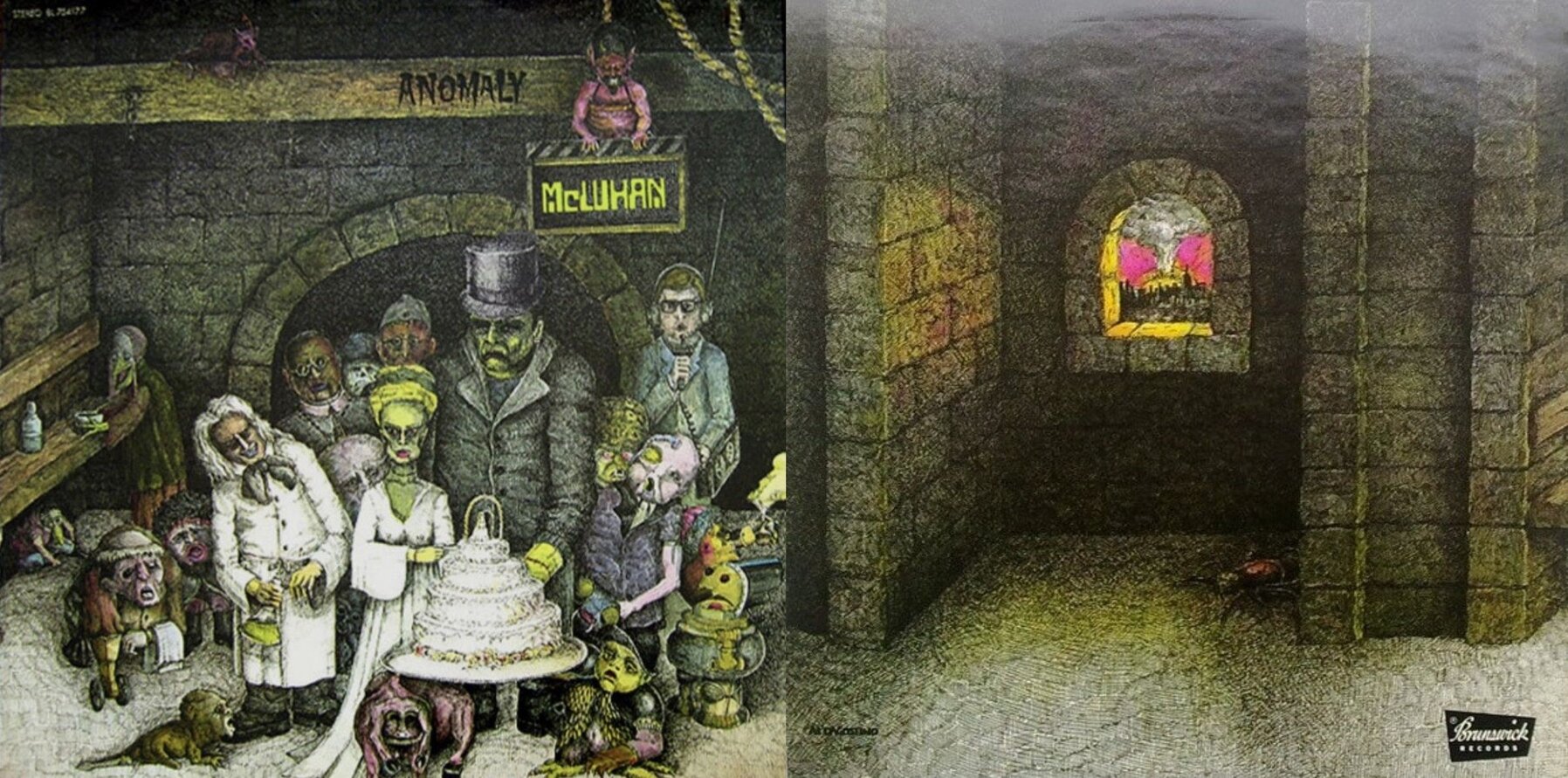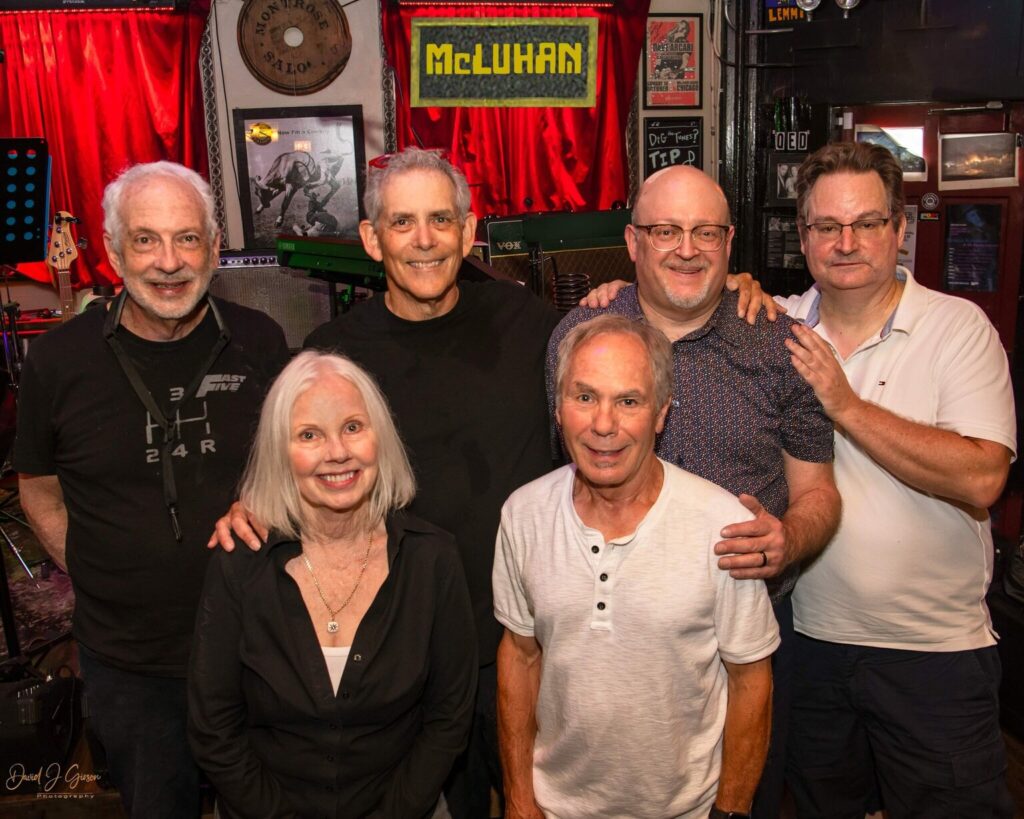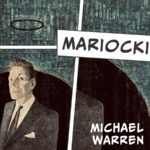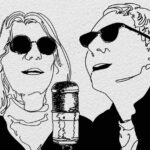
Neal Rosner is a founding member of the Chicago-based progressive rock group McLuhan. Their 1972 album Anomaly remains a fascinating artifact of its time, with its cult status leading to a resurgence. In this interview, Neal reflects on the reissue of Anomaly, and his plans for the reformed McLuhan.
Growing up in Chicago during the 1950s and 60s, how did the city’s cultural atmosphere shape your early musical aspirations?
I was born in “Sweet Home Chicago” on May 2, 1951. Chicago is a “Big City with Broad Shoulders” known for its toughness, tenderness, and lots of all kinds of music.
I have always loved to sing. My first memories at age 5 include singing with my grandma Bella; she playing piano and me wailing “Go Down Moses…Just a Song at Twilight.” I heard religious music in Temple Beth-EL, Blues on Maxwell Street, and my mom singing show tunes in community theater. I listened to Jazz and R&B at old long-gone clubs including Scotch Mist and Mr Kelly’s, which let you in as a teenager. Then there were teen clubs like Legion Hall, Plant Room, Rolling Stone, and Wild Goose, where local bands could show off their stuff.
The British Invasion played a big role in your musical development. Can you share how groups like The Beatles and The Kinks inspired your early work?
Puberty and the British Invasion occurred simultaneously: The Beatles, Dave Clark 5, Searchers, Gerry & the Pacemakers…and I grew my hair longer into a “Beatles Cut” and tried to iron my curly hair with a clothes iron; I could have burnt my head off! My first band, in the 8th grade, was called “The Acoustics.” We had three guitarists, drums, keyboards, had no bass, and I was the lead singer. We were terrible but music became my obsession and something just clicked.
When forming McLuhan, which artists were you influenced by?
Mcluhan was influenced by Frank Zappa, King Crimson, and The Fugs.
McLuhan combined elements of progressive rock, jazz, and classical music. How did the diverse backgrounds of the members contribute to this unique blend?
My next door neighbor was Paul Cohn (woodwinds). He, Dave Wright (trumpet), and Marv Kraut (keyboards) were in a “show band” (who performed music by The Carpenters, etc.) and wanted to break out into original ideas and music. Paul asked if I could play bass and Mcluhan was formed. Paul, Dave and I were students at the University of Illinois in Chicago. They were in Concert Band at U of I and had significant chops.
Dave Wright wrote 3 of the 4 songs on the album Anomaly. He was influenced by the Canadian philosopher Marshall Mcluhan’s “The Media is the Message,” Mixed Media, and the relationship between media and civilization. One of our songs, “A Brief Message From Your Local Media,” is a 4-part suite: The Garden, The Assembly Line, Electric Man and Question.
Can you tell us more about the influence of Marshall McLuhan’s philosophy.
As I mentioned, it was Dave Wright who was influenced by Marshall McLuhan and his signature phrase “The medium is the message,” which is also the name of the first chapter in his book Understanding Media: The Extensions of Man, published in 1964. Marshall McLuhan’s writings, Mixed Media in art and entertainment, and the relationship between media and civilization influenced our creative direction.
What led you and Paul Cohn to experiment with mixed-media performances?
Because of McLuhan’s philosophy, we tried mixed media, using slides and film to Illustrate our work. This was most fun for “Monster Bride” using clips from the movie classic Bride of Frankenstein. The clips synchronized with our song, which touches on multiple musical genres.
Can you tell us about your residency at The Wise Fools Pub?
We auditioned for Wise Fools Pub, which was at 2270 Lincoln Ave in Chicago, and they gave us the Monday slot. We established a following, got some local press, and attracted Carl Davis from Brunswick Records and they offered us a recording contract. Brunswick was an R&B label. They had The Chi-Lites, a successful national group. Brunswick was hoping that we could be their white crossover act like the band Rare Earth but we were not funky by any means so the album went nowhere.
What do you remember most about working with Bruce Swedien on the album? A decade later he worked on Michael Jackson’s Thriller.
We met Bruce Swedien at Brunswick Studios on South Michigan Avenue in Chicago. He was super nice and invited us to his home in the Chicago suburb Highland Park. We were just kids at the time and had no idea how important he was. He was patient with us and very creative.
While “Monster Bride” was inspired by classic horror, what was the inspiration behind “Spiders in Neal’s Basement”?
“Spiders (in Neal’s Basement)” was written by Marv Kraut who was our keyboard player prior to the album. The lyrics are social criticism of life in the late 60s and early 70s. We practiced in my basement (and there were a lot of spiders!) and we thought that would be a cool title. “Spiders…” is unique musically: a combination of Calypso, Dixieland and Klezmer clarinet.
What led to the group splitting?
We were young and not very successful. We drifted apart, grew up, got married, divorced, had kids, and careers.
Given the album’s cult status today, how do you feel about its newfound recognition?
The album originally went nowhere but it grew in popularity online: over 120K views on different YouTube sites. I am thrilled at its resurgence and thrilled that we can still play it for Chicago audiences. We now play regularly at Chicago clubs, including Montrose Saloon. Andrew Clark, our sound guy at Montrose, suggested that it would be cool to re-release the album. His father Ellis Clark is a brilliant sound engineer. He was able to obtain a sub-master and he remastered Anomaly in excellent quality and we pressed the new vinyl at Smashed Plastic in Chicago.
What were the challenges of reissuing Anomaly on vinyl?
It can be challenging and costly to press and distribute vinyl to local record shops but the reissue of Anomaly is currently selling quite well at Chicago stores.
What sparked the decision to reunite McLuhan and perform Anomaly live again, and how has the addition of new band members shaped your current sound?
In 2018, several of us met up and started playing together again. We were inspired by an article that Steven Krakow published in the Chicago Reader’s “Secret History of Chicago Music” about us.
The ages of our current line up range from 74 to 28 and our newer members, Luke Meyer on drums, Mitch Markus on guitar, and Bart Coyle trumpet, help bring new life to McLuhan. We are more successful and play better now than we did in 1972.

Your latest solo album, Kentucky, spans decades of experiences. What was it like working with Steve Baker and your fellow musicians on this album?
I lived in Madisonville, Kentucky for 12 years and I recently released the solo album online. It is, quite simply, my love song to the town and its people. Kentucky was recorded with Steve Baker, a brilliant engineer, and some terrific musicians, Alonzo Pennington and Boscoe France. I also have a re-release of my solo album Love Isn’t the Answer, which was recorded in 1999.
Looking ahead, what projects are you focusing on?
There is a new McLuhan album in production that will be released in late spring or in the summer of 2025. It will be McLuhan 2025 and will feature my original songs, some of which are delightfully weird and in the spirit of Anomaly. We would love to increase interest in the UK and would love to play there.





Hi there
Firstly I have to apologise I am not replying on the current post.
We are a family of music lovers stemming way back in both sides of my mothers and fathers family, my dad was the front man of bands from the age of 16 where he formed a band called The Vibrators, back then it didn’t have an alternative meaning
He then went on to form another band The Dave Good Band and ran The Maracas Club in Silver end Hotel near Witham hosting many local upcoming bands on a weekly basis
He isn’t great with social media but I was hoping to ask on our families behalves that you could upload his CD, we have many copies of him singing Say Mama and High School Confidential, we would love him to be heard by Strangers Brew Fans, we think they’ll love it.